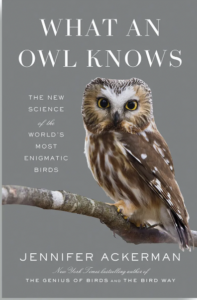A Note from the Publisher
Sounds impressive, eh? A bit like what one imagines Arthur Ochs Sulzberger might have written when he was publisher of the New York Times. My message today, though is more modest. It’s to say that from now on, this newsletter will come out three days a week rather than the current five.
There’s some background that may help to explain this. I’ve been a blogger (on memex.naughtons.org) ever since the early days of the Web. When the pandemic arrived in March 2020 and I was suddenly confined to barracks by order of the UK government, I fell to wondering what an academic and blogger could usefully do, and hit on the idea (which I got from the great Dave Winer) of producing a version of my blog as a daily newsletter. Thus was born the one you’re reading now.
In the first 100 days of the pandemic, this went out seven days a week, and also included a daily audio diary in which I recorded my thoughts and experiences of that weird period. (I subsequently published the transcripts of the audio diary as a Kindle book.) It was an exhausting task, though, given that at the same time I was setting up — and initially running — a new research centre in Cambridge. As this settled down and the pandemic eased, I moved to publishing the newsletter edition five days a week. But now that I’m embarking on a long writing project I’ve decided that publishing on Monday, Wednesday and Friday will give me the time I need for other stuff that I need to do. So please don’t panic tomorrow or Thursday when you don’t find something from me in your inbox!
And thank you for reading.
John
Quote of the Day
“When a stupid man is doing something he is ashamed of, he always declares that it is his duty.”
- George Bernard Shaw
Musical alternative to the morning’s radio news
Kathryn Tickell | ‘Lads of Alnwick’
I ran into a reader yesterday who wondered why I seemed only to be interested in Irish Uileann piping. What about the much sweeter Northumbrian pipes? Well, here’s a fine example.
Long Read of the Day
Techno-Narcissism
Scott Galloway on the nauseating hypocrisy of the AI-bros.
It’s notable today that many of the outspoken prophets of AI doom are the same people who birthed AI. Specifically, taking up all the oxygen in the AI conversation with dystopian visions of sentient AI eliminating humanity isn’t helpful. It only serves the interests of the developers of nonsentient AI, in several ways. At the simplest level, it gets attention. If you are a semifamous computer engineer who aspires to be more famous, nothing beats telling every reporter in earshot: “I’ve invented something that could destroy the world.” Partisans complain about the media’s left or right bias, but the real bias is toward spectacle. If it bleeds it leads, and nothing bleeds like the end of the world with a tortured genius at the center of the plot.
Land Grab
AI fearmongering is also a business strategy for the incumbents, who’d like the government to suppress nascent competition. OpenAI CEO Sam Altman told Congress we need an entire new federal agency to scrutinize AI models, and said he’d be happy to help them define what kinds of companies and products should get licenses (i.e., compete with OpenAI). “Licensing regimes are the death of competition in most places they operate,” says antitrust scholar and former White House senior adviser Tim Wu (total gangster). Similar to cheap capital and regulatory capture, catastrophism is an attempt to commit infanticide on emerging competition.
Real Risks
Granted, we should not ignore the dangers of AI, but the real risks are the existing incentives and amorality in tech and our ongoing inability to regulate it. The techno-catastrophists want to create a narrative that the shit coming down the pike is not the result of their actions, but the inevitable cost of progress. Just as the devil’s trick was convincing us he didn’t exist, the technologist’s sleight of hand is to absolve himself of guilt for the damage the next generation of tech leaders will levy on society.
Spot on. Do read it.
Books, etc.
Book Review: ‘What an Owl Knows,’ by Jennifer Ackerman
Interesting review by Jennifer Szalai of what looks like an interesting book.
Perhaps one of the main reasons owls have been burdened with so many cultural stereotypes is that they are so distinctive — even a young child can identify their shape — while also being enduringly mysterious. In “What an Owl Knows,” Ackerman explains that the “new science” she refers to in her subtitle has required technological innovations: cameras, drones, DNA analysis, satellite transmitters. We can now see owls inside their nests or migrating over the Great Lakes. But even the most sophisticated gear can do only so much. Getting physically close to owls presents some stubborn challenges. Researchers wanting to protect their heads from an owl swooping down cannot wear a hard-hat helmet, because that could kill a bird on impact. A researcher who got whacked by a big female protecting her nest recalls feeling blood streaming from the back of his skull and pulling out a piece of talon.
Daniel Ellsberg RIP
The great whistleblower of my generation has passed away at the age of 92.
From the NYT obit:
The disclosure of the Pentagon Papers — 7,000 government pages of damning revelations about deceptions by successive presidents who exceeded their authority, bypassed Congress and misled the American people — plunged a nation that was already wounded and divided by the war deeper into angry controversy.
It led to illegal countermeasures by the White House to discredit Mr. Ellsberg, halt leaks of government information and attack perceived political enemies, forming a constellation of crimes known as the Watergate scandal that led to the disgrace and resignation of President Richard M. Nixon.
And it set up a First Amendment confrontation between the Nixon administration and The New York Times, whose publication of the papers was denounced by the government as an act of espionage that jeopardized national security. The U.S. Supreme Court upheld the freedom of the press.
This Blog is also available as an email three days a week. If you think that might suit you better, why not subscribe? One email on Mondays, Wednesdays and Fridays delivered to your inbox ay 6am UK time. It’s free, and you can always unsubscribe if you conclude your inbox is full enough already!


